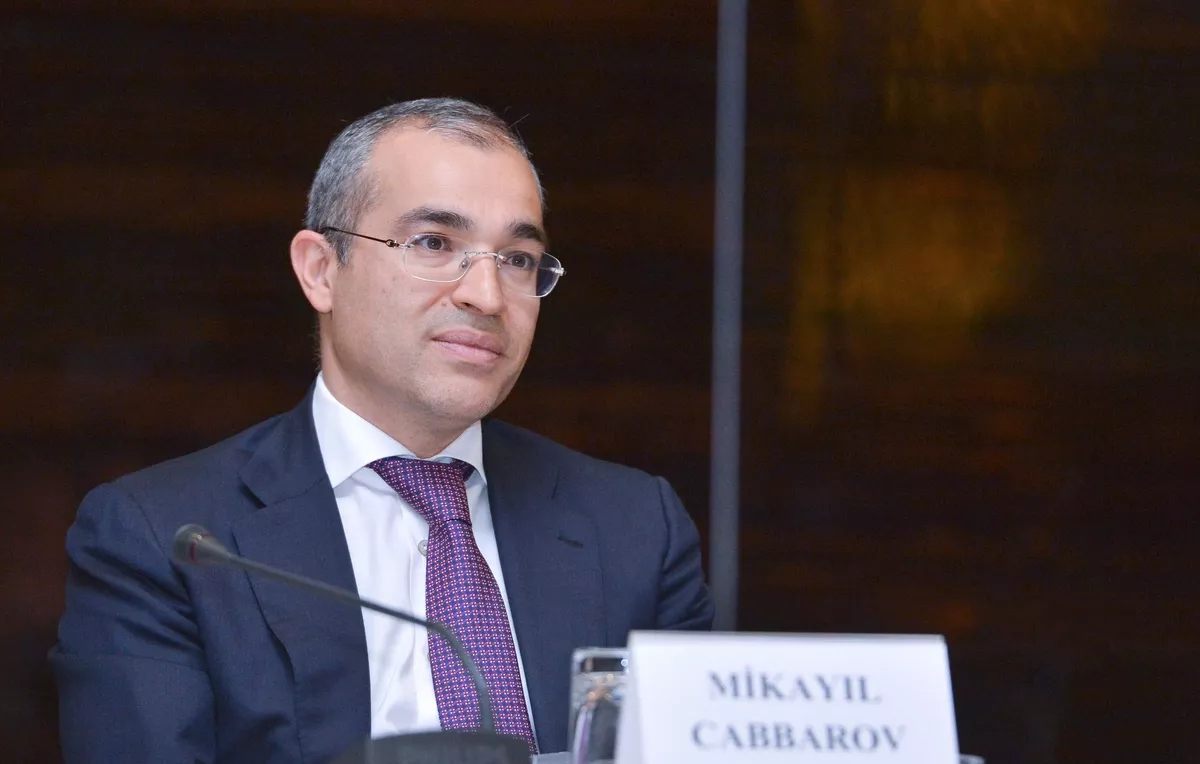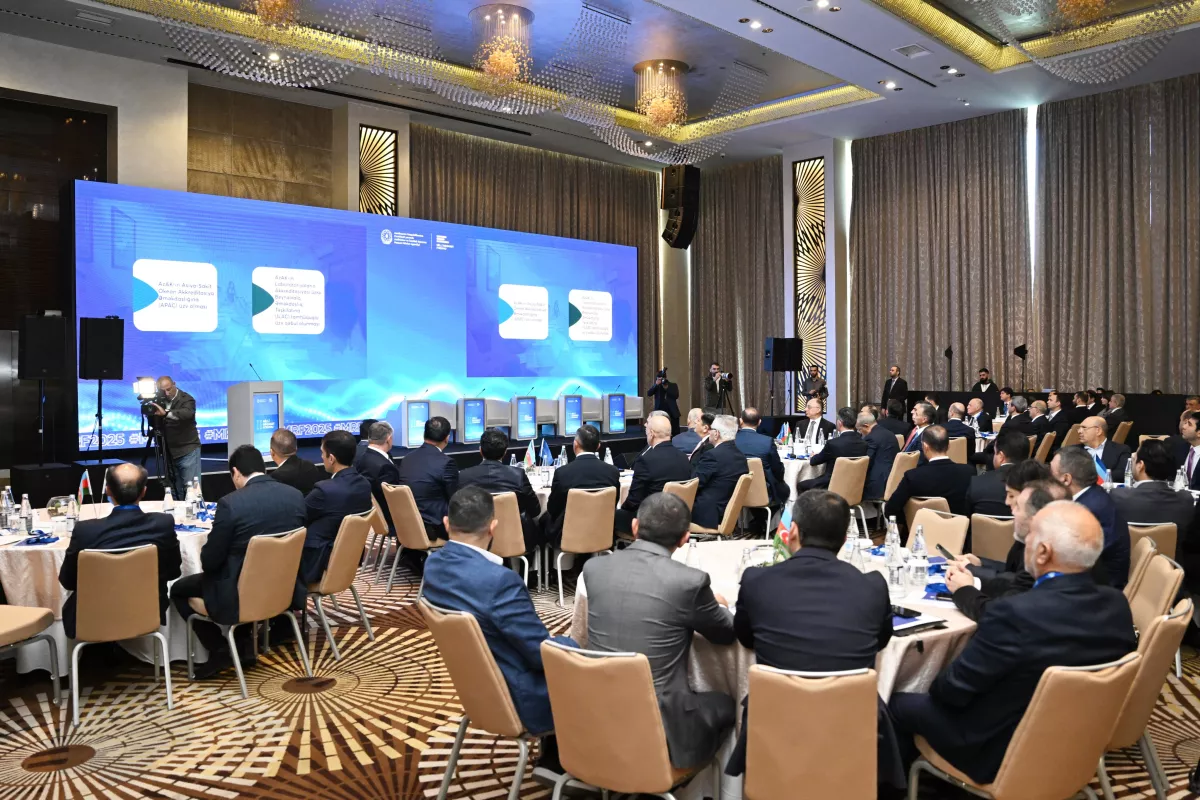Azerbaijan embraces transparency and fair competition Boosting business
Sustained economic growth in Azerbaijan, particularly in a rapidly evolving global environment, depends on boosting the country’s investment appeal and attracting international capital. Equally crucial is encouraging domestic businesses to modernise their operations, adopt advanced technologies and know-how, and significantly expand non-oil exports.
Achieving these goals requires fostering healthy competition among local market participants by combating “cartel” collusion and removing artificial barriers in trade, imports, and production. These issues were the focus of recent discussions between government officials and business representatives at the II National Competition Forum held in Baku, highlighting the state’s commitment to transparency, fair competition, and long-term economic resilience.
In recent years, Azerbaijan has taken substantial steps to strengthen its fight against unfair competition and monopolistic practices, while enhancing consumer protection. In July 2024, the Competition Code (CC) came into effect, accompanied by the development of a range of regulatory and legal instruments to ensure its implementation. The country has also advanced in areas such as standardisation and increasing transparency in electronic public procurement. In February 2025, the State Service for Antimonopoly Control and Consumer Market Oversight under the Ministry of Economy was elevated in status and reorganised into a State Agency under the President of Azerbaijan, reflecting the government’s commitment to a fair, transparent, and competitive market environment.
Having established itself as an authoritative body for optimising the regulation of market conflicts and protecting entrepreneurs from the adverse effects of unfair competition, the new State Agency has gained expanded powers and a comprehensive set of tools to implement the provisions of the Competition Code fully, thereby enhancing antitrust oversight and control. This is intended to ensure a faster transition from static to dynamic market regulation.
To further strengthen antimonopoly control, the supervision of public procurement, advertising (excluding outdoor advertising), as well as areas such as standardisation, metrology, technical regulation, conformity assessment, accreditation, and quality management, has been transferred under the purview of the new structure.
Last year, several additional measures were taken to optimise activities in this area. In particular, a National Action Plan for 2024–2026 was developed, aimed at expanding the competitive environment and preventing manifestations of monopolism. Work is also underway on the creation of a Competitiveness Index, and a corresponding national Competition Map will be introduced — an open digital platform providing information on the market structure and its participants across all regions of the country.
Specifically, an electronic competition information system is being developed to receive and process submissions from consumers and market participants on both competition-related issues and consumer protection matters. The system will enable real-time access to required documents and data from other state bodies, provide electronic responses and decisions, and offer open access to up-to-date information in these fields for all users.
To summarise the State Agency’s achievements, evaluate the experience gained, and set future goals, the 1st National Competition Forum was held in July last year, serving as an important platform for dialogue on modern challenges in the field of competition policy. It should be noted that the Ministry of Economy’s initiative to organise these forums was conceived as a long-term effort. Recently, the 2nd National Competition Forum took place in Baku, bringing together members of the Milli Majlis (parliament), as well as representatives from government agencies, business associations, and the private sector.

“Together with colleagues, we underscored the crucial role of free and fair competition in ensuring the successful implementation of economic diversification and fostering the growth of the private sector at the 2nd National Competition Forum,” Azerbaijani Minister of Economy Mikayil Jabbarov wrote on his social media page. “We highlighted the measures undertaken to further strengthen Azerbaijan’s business environment, including advancing economic transparency, promoting inclusivity, encouraging innovation, and investing in human capital development.”
The Minister of Economy expressed confidence that the discussions held within the framework of the forum would make a valuable contribution to improving the competitive environment and fostering entrepreneurship in the country.
Speaking at the forum, the Minister of Economy reminded that Azerbaijan is taking steps to modernise its economy, introduce advanced technologies, improve the business climate, and strengthen the country’s international reputation.
“Competition is the driving force of a market economy: supply and demand are properly shaped only in a competitive environment, while innovation and productivity are possible solely under conditions of healthy competition,” Mikayil Jabbarov noted. “The regulation of competition policy in Azerbaijan serves the interests not only of state institutions but also of society as a whole. It is important that this issue be perceived as an ecosystem — by sectoral organisations as well as by each of us, citizens and market participants alike.”
According to the minister, one of the key challenges facing markets, including Azerbaijan’s, is the need to diversify the economy and introduce new products and services. When there is only one producer of a particular product or service, this does not contribute to the development of healthy competition.
“It is important to have at least two major players in the market, but to create a truly competitive environment, there must be more,” the Minister of Economy stressed. “Our goal is to stimulate the production of new products and services that are currently absent from the economy and bring them to the market.”
The key challenge in this area lies in determining the optimal strategy and the most effective methods for market regulation and consumer protection. Azerbaijan, in particular, has long required more robust mechanisms to manage competition in the sphere of foreign trade. However, finding the right balance is crucial — between state protectionism and government intervention aimed at supporting domestic producers, and, on the other hand, the need to enhance competition and remove barriers to market entry. Without such balance, it is impossible to increase the number of foreign trade participants or bring down market prices.
Another problem arises from the fact that, in some cases, Azerbaijani regulatory bodies perform both supervisory and regulatory functions while also participating in the market. This situation contradicts the principles of fair competition and creates systemic risks.
In this context, Jabbarov has emphasised that effective and transparent regulation of natural monopolies is vital to safeguard competition and promote sustainable economic development in Azerbaijan. He noted that this objective is being advanced through ongoing institutional reforms, the strengthening of corporate governance in certain state-owned enterprises, and the creation of state holding companies to ensure greater efficiency and accountability.

“It is necessary to strengthen the fight against collusion and ensure healthy competition among market participants in Azerbaijan,” said Elnur Baghirov, Chairman of the State Antimonopoly Agency, who took part in the forum. “It is essential to combat unlawful agreements that artificially restrict competition. To curb unfair competition, special importance must be attached to strengthening state control over the activities of natural monopolies, as well as to countering horizontal and vertical agreements that limit competition, since they lead to a reduction in product variety, weaken innovation, and harm consumer interests.”
Work in this direction is being intensified, noted Baghirov: “In the first eight months of 2025, the number of complaints regarding unfair competition reviewed was twice as high as during the same period last year. In Azerbaijan, 54 investigations are currently underway, and 12 cases have been initiated on facts related to unfair competition. As a result, 14 business entities voluntarily rectified the identified violations, which indicates the growing responsiveness of the business community to the principles of fair competition.”
Azerbaijan has recently made significant progress in ensuring equal opportunities for entrepreneurs to participate in public procurement tenders. In the first half of 2025, the average number of participants in procurements conducted via open tender increased by 7.5%, while the total number of participants in public procurement rose by 2.8%.
“The main goal in this area is to ensure the efficient use of state budget funds, expand opportunities for entrepreneurs to participate in public procurement, establish clear standards for products and services, and stimulate the development of quality infrastructure,” Baghirov noted, emphasising that these measures support small and medium-sized businesses and contribute to the creation of a favourable business environment in the country.








